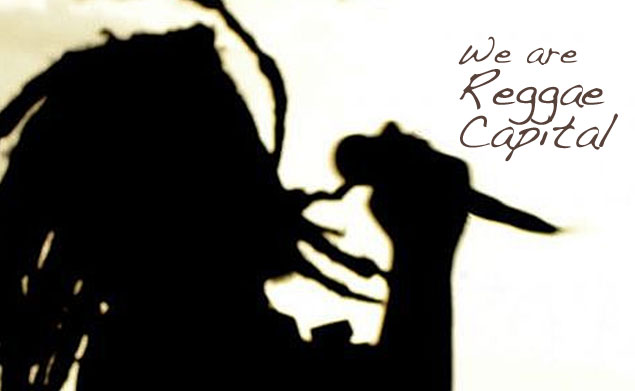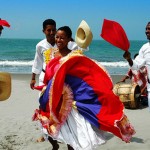While Jamaica is known as the birthplace of reggae music, it no longer holds the title as reggae capital f the world. With reggae music legends such as Bob Marley, Peter Tosh and Jimmy Cliff taking reggae music and it message of love, peace and positive vibrations to the world stage, reggae music has become the music of choice for many countries outside Jamaica. Reggae/culture music, which should not be confused for dancehall music, has been and continues to be used as a tool for activism and resistance. Void of its political implications and purpose, reggae music just gives that feel good positive vibe and enables it’s listeners to appreciate its messages of love and togetherness.
In the 1970’s, outside of Jamaica, Europe particularly Britain, was one of the largest consumers and distributors of reggae music. Today, another European country, France, has been leading the way in reggae music production and distribution. As noted by reggae music producer/ engineer Sam Clayton, who also happens to be the son of Rastafari elder Sam Clayton Sr., “I know France is the biggest reggae country outside of Jamaica. Yes, it’s a bigger market than the US; it’s a bigger market than England.” In recent years, France has been plagued by various uprising, predominantly led by discontent immigrant youths, who find it difficult to strive in what many of them see as a xenophobic society. This discontent could be a contributing factor to the surge of reggae music in France. Reggae music is used as a means of activitism and its positive message also serves as a voice of hope. Reggae music in France is not only popular because of the importation for reggae artists and music but there is also a strong and market and production of home-grown reggae music.
Another country that is making claim to being the reggae capital of the world is the West African nation of Côte d’Ivoire. Muva, CEO of Jamaica Arts Development Foundation Inc, Lloyd Stanbury, declared that Abidjan — the former capital of Côte d’Ivoire — is now the reggae capital of the world. He explained that “The love and respect for reggae music and Jamaica remain strong. This was evident from my experiences during the many days I spent in Ouagadougou, Dakar and Abidjan. Abidjan is actually considered to be one of the reggae capitals of the world, and while there I was able to witness the stirring live presentations of home-grown reggae bands.” Côte d’Ivoire is not the only African country claiming reggae music as one of their main forms of music genres. Other West African countries including Senegal, Burkina Faso and Ghana are also among the largest consumers, distributors and producers of reggae music.
Japan has also made claim to being the reggae capital of the world. In recent years, Japan has openly expressed its love and appreciation for reggae music by holding one of the largest reggae music festivals in the world, Japansplash, which is a festival modelled after Reggae Sunsplash in Jamaica. Reggae artists are always eager to infiltrate the reggae market in Japan because they know that the exposure to the market will help to propel their careers due to the large market for reggae music in the country.
While each country can legitimately make the claim as being the reggae capital of the world, the fact that reggae music is able to transcend issues of race and culture and connect with so many different people around the world, speaks volumes of its power and influence.
Côte d’Ivoire
Japan
France
Posts Latest by Nekita (bheka konke)
- Ngaphambi Rihanna kwakukhona Grace Jones - December 27, 2014
- Marimba: Expression of Freedom, kodwa my Afro-Ecuadorians… - December 25, 2014
- Ngubani Eyenza Claim Zokuba the Capital Reggae of the World? - December 24, 2014




